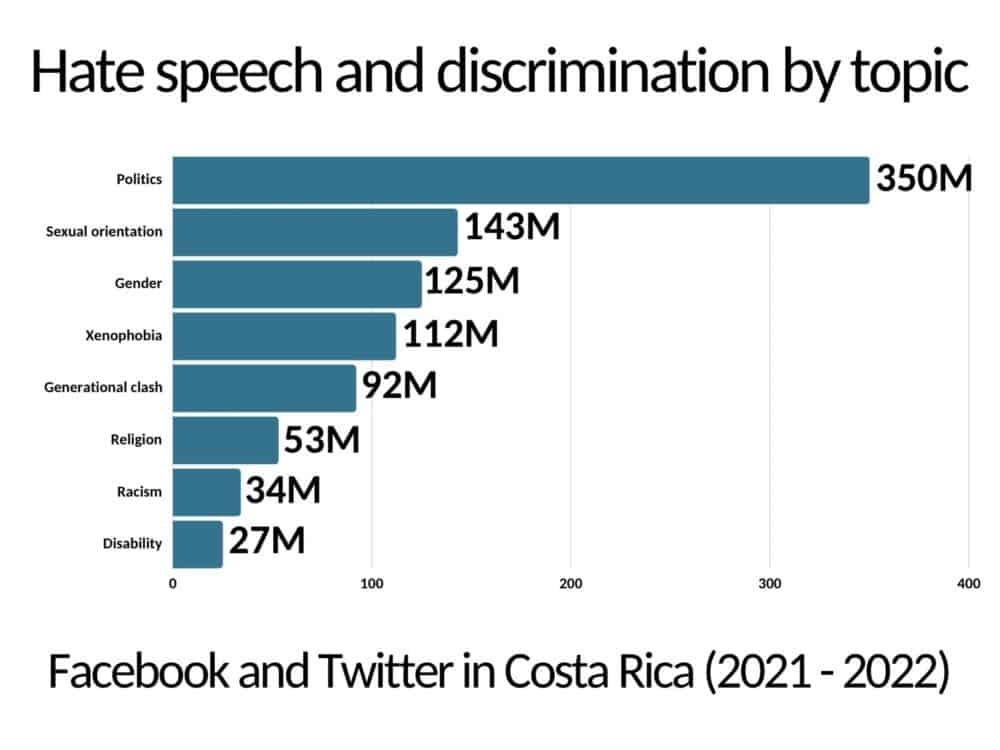According to a study conducted by the UN for 2021-2022, hate speech and discrimination increased 71 percent in Costa Rica’s social networks. The report found that although there has been a general increase in hate speech in this Central American country, certain groups have been more affected than others.
In recent years, hate speech, stigmatization, and discriminatory narratives began to surface in social networks and beyond, increasingly creating a divisive and toxic atmosphere in the country.
More than 937 thousand messages and conversations were detected in social networks nationwide in the last year, linked to hate speech and discrimination, compared to 548 thousand caught in the previous period, representing an increase of 71%.
The new study on hate speech in social networks in Costa Rica 2021-2022 was prepared jointly by the United Nations, the Digital Communication Observatory of the Communication Research Center of the UCR, and the firm COES, a specialist in data analysis.
According to the UN, sets of words were identified in public profiles and Facebook and Twitter pages that were categorized through Artificial Intelligence software to geolocate them and classify them by age and gender. The data was then processed through other computer tools for graphing and visualization.
The research also showed that 77% of the messages analyzed had the direct intention of offending, attacking, and violating other groups or individuals, representing an increase of 8 percentage points compared to the previous period.
It is worth noting that 64% of all hate and discrimination messages were also found to be issued by men.
“These data help us understand that we must combat the growing hate speech and discrimination. Politics and electoral processes should be spaces for solutions, creative and constructive dialogue, and not a time for hate, aggression, and online violence,” said Allegra Baiocchi, United Nations Resident Coordinator in Costa Rica.
The UN data made it possible to determine the three topics with the highest number of hate speeches and discrimination: Politics and elections (350 thousand), sexual orientation (143 thousand), gender (125 thousand), xenophobia (112 thousand), generational clash (92 thousand), religion (53 thousand), racism (34 thousand) and disability (27 thousand).
“We all have responsibilities, from the media, social networking companies, and political parties. Let us commit today to end these messages that do not contribute to strengthening the social fabric and the necessary cohesion to achieve a more prosperous and safer Costa Rica, with equal opportunities for all people,” Baiocchi stated.
The guide is part of the Costa Rica Plan against hate speech and discrimination, presented in 2021 by the UN. It includes at least eight strategic action areas, protecting victims and strengthening the rule of law.
The United Nations Office promotes this plan in partnership with the United Nations System in Costa Rica, the University of Costa Rica, the Costa Rican Bar Association, state entities, academia, civil society, and other committed individuals.







